To communicate between server and client, Parametric Robot Control needs to have a valid certificate installed. This happens automatically in the Windows installer (unless deselected). If you are using macOS or are experiencing problems, please refer to the Certificates section and watch the video below.
Parametric Robot Control - Installation on macOS
On macOS, the user needs to perform some steps that are done automatically by the installer on Windows. This video supports the documentation at https://prc.robotsinarchitecture.org and guides you through the installation process.
https://youtu.be/yF19EUVyurc

Parametric Robot Control requires the .NET Runtime (≥10). It comes bundled with the Windows and macOS releases, however if you are running the Developer version, NET10 needs to be installed from Download .NET (Linux, macOS, and Windows).
You can download the preview release of Parametric Robot Control from the Download page.
Installation: Windows
An early video tutorial also showing the installation process is available on the  Grasshopper page.
Grasshopper page.
 Grasshopper page.
Grasshopper page.Download the .exe file containing the installer.
The installer is digitally signed. However, you may still have to manually select that you want to “Keep” the download.
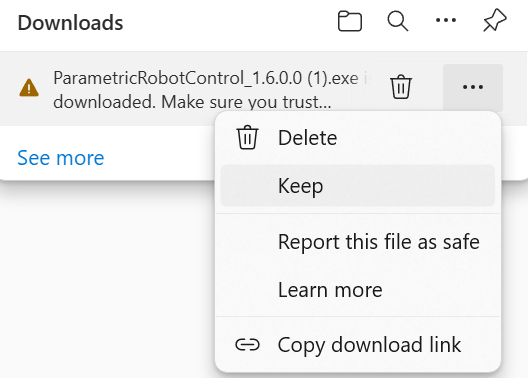
In the installer, accept the prompt that this is experimental software.
We suggest keeping all elements selected.
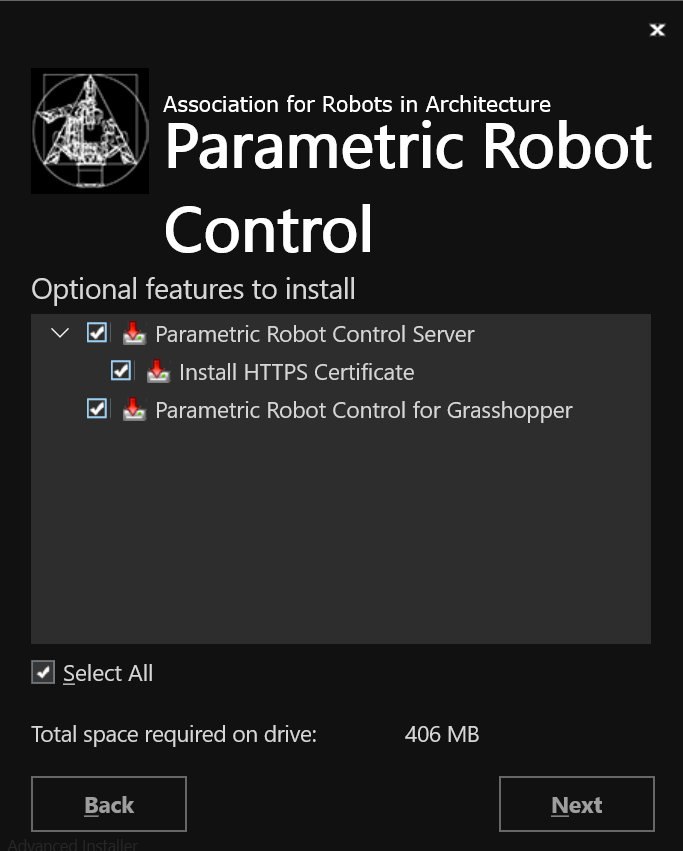
If “Install HTTPS Certificate” is enabled and the certificate has not yet been installed, you will get the prompt below. Confirm the prompt as the certificate is needed for the Server to function. You do not require Administrator rights for that. The certificate installer can also be run from
%LOCALAPPDATA%/Parametric Robot Control/PRC.Server/Certificates/PRC.CertInstaller.exe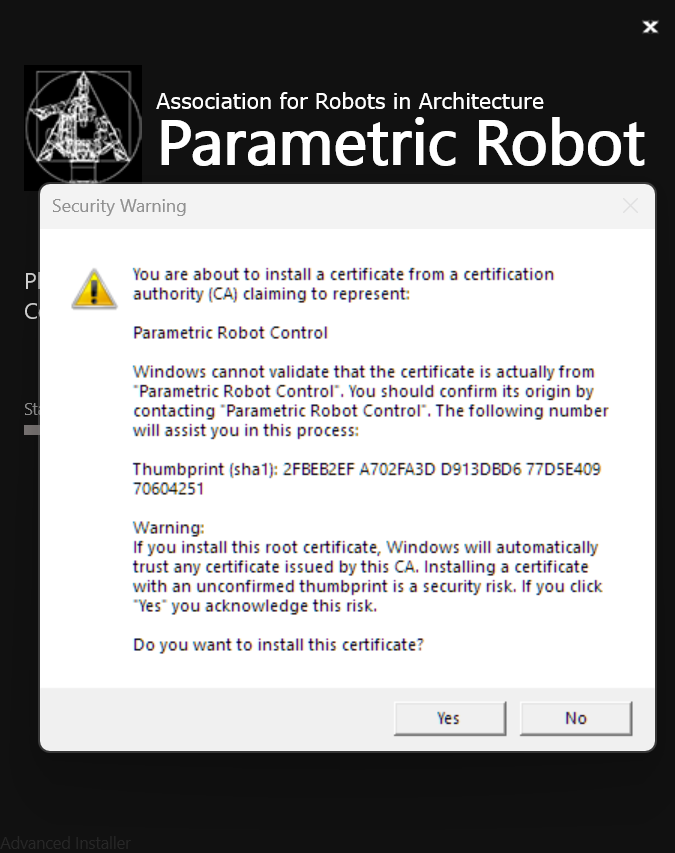
You can now start the server from the Start Menu and other integrations from the respective apps.
Installation: macOS
The installation process on macOS is significantly more “manual” than on Windows. The main challenge lies in the encryption certificates that need to be installed. On macOS you may need to repeat the certificate installation at least every 2 years, as the maximum duration is capped. This is a safety consideration that does not apply to Windows where the certificate has got a duration of 30 years.
On macOS, download the DMG file provided in the Download section. Double-click the file.
The video below guides you through the installation process on macOS.
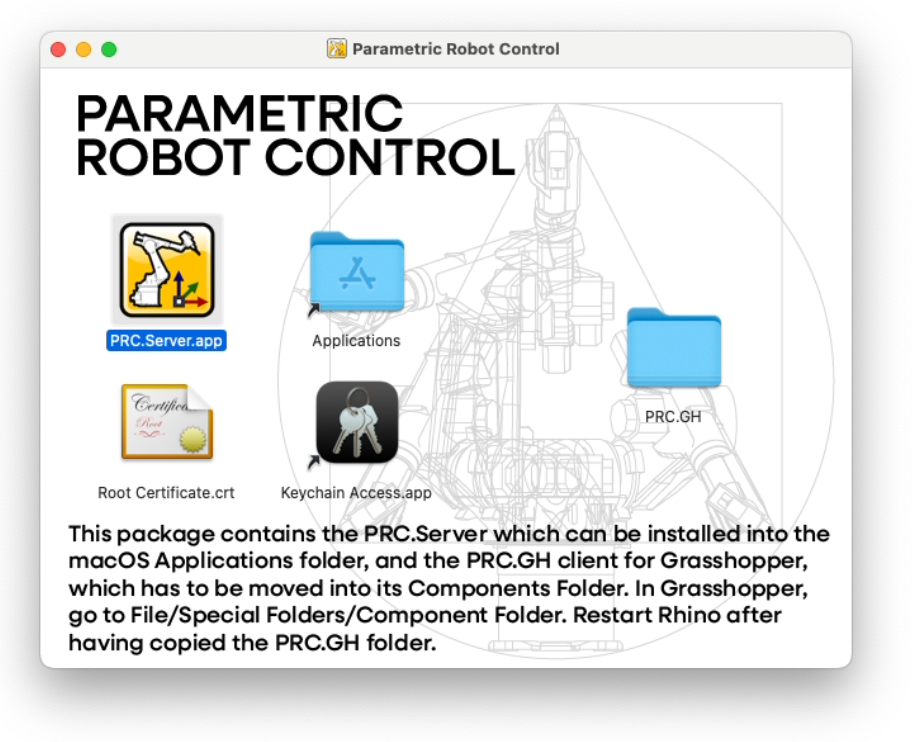
To install the server, drag the PRC.Server app into the Applications folder.
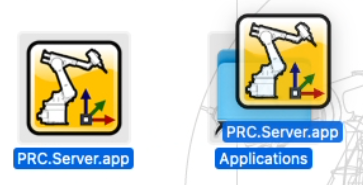
To install PRC.GH for Grasshopper, go into Grasshopper and select File/Special Folder/Components Folder.
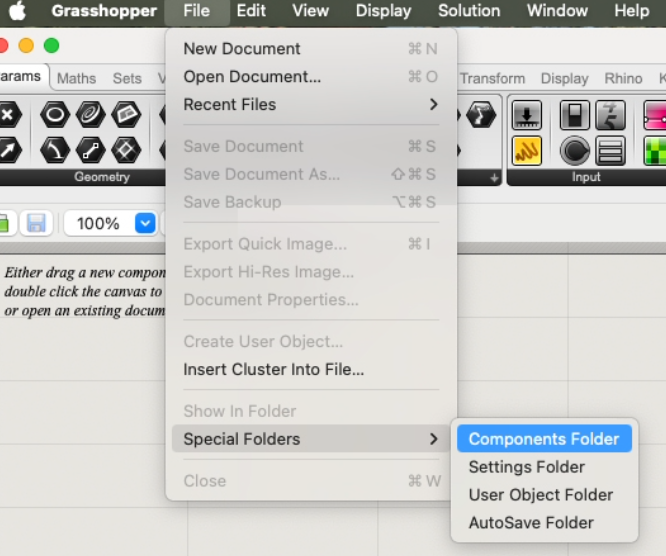
Drag and drop the folder PRC.GH into that folder.
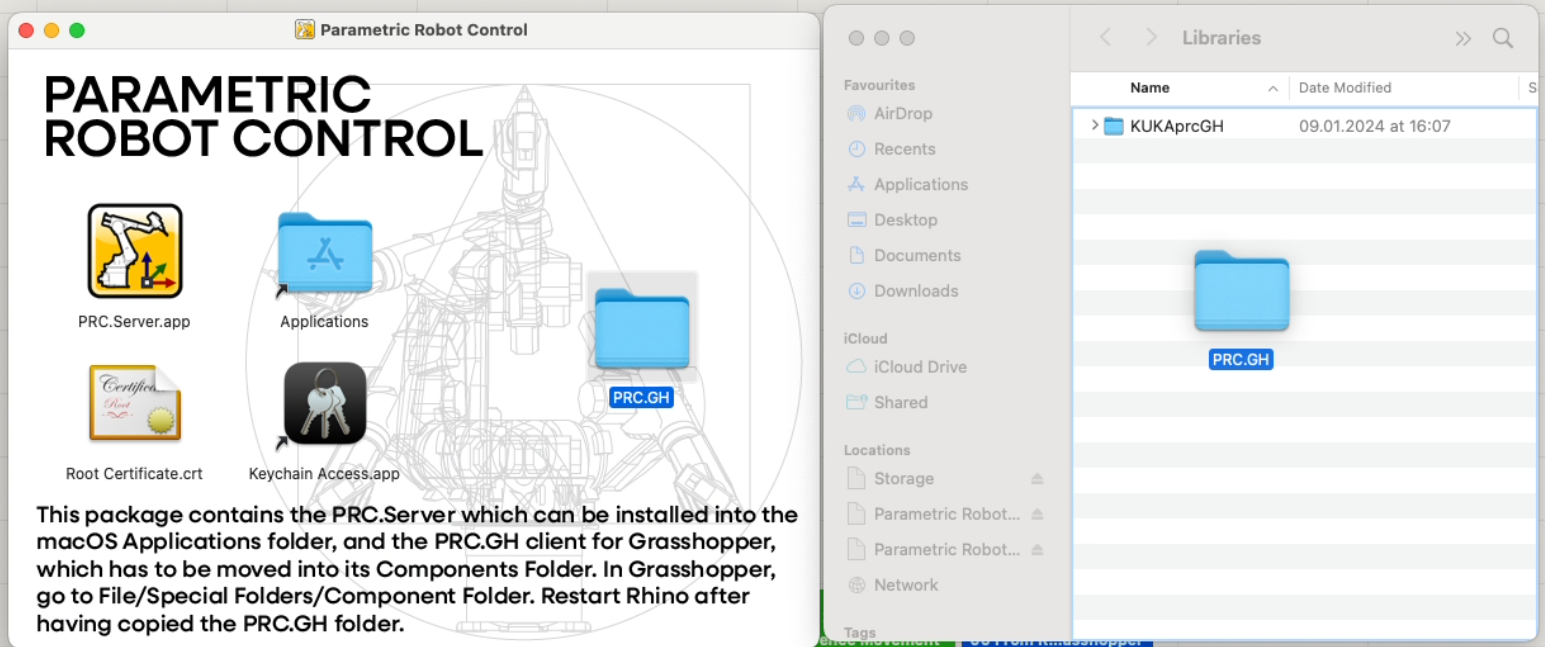
Finally, to install the Root Certificate, double-click the link to the Keychain Access app. Confirm that you want to open that app and enter your password.
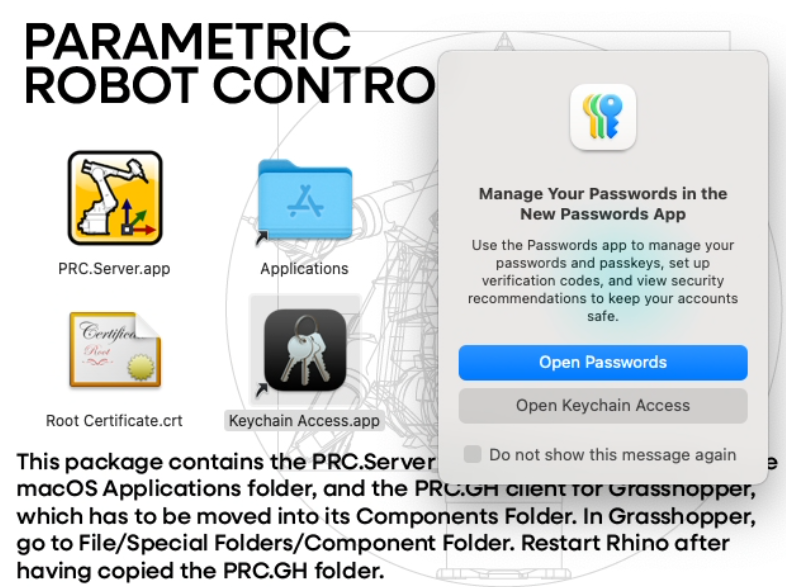
Drag and drop the Root Certificate.crt file from the window into the Certificates tab that should be open on start. Select “Add” when prompted.
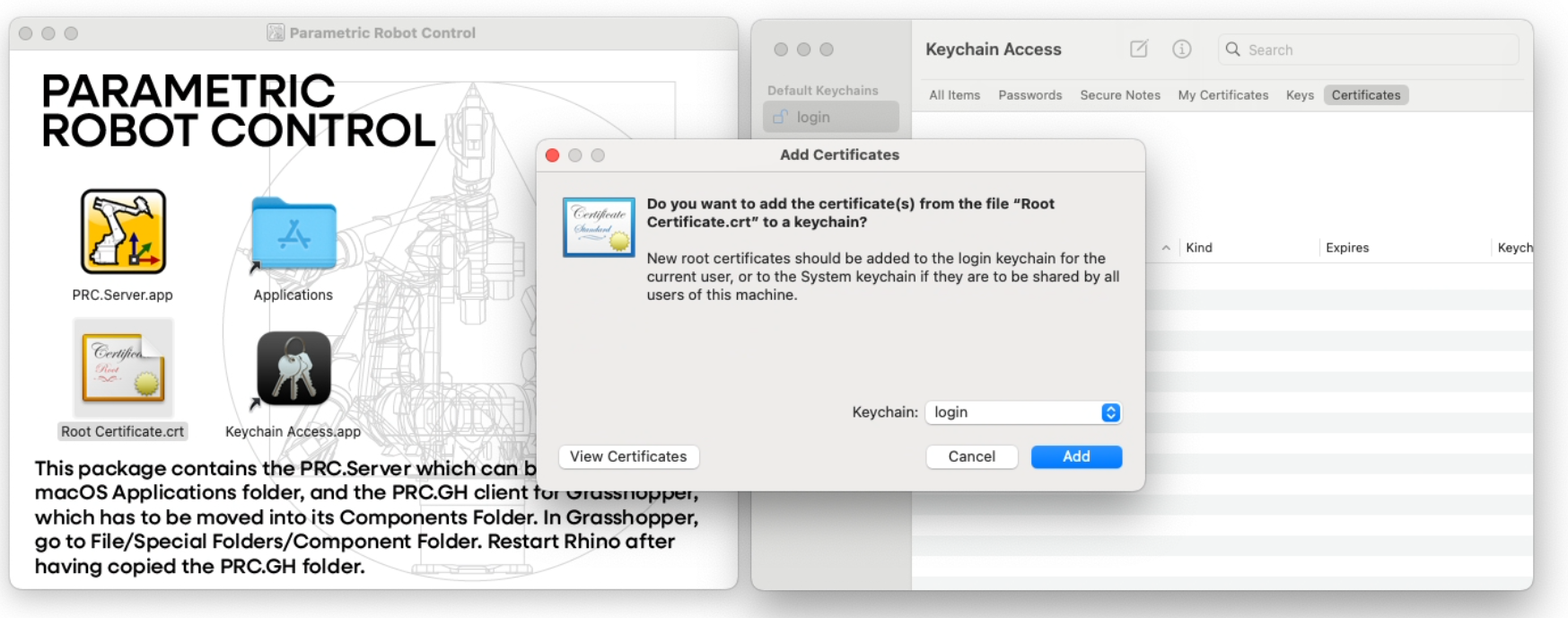
It may take a while for all the certificates to show up. The new certificate will have a red X signifying that it is not trusted. Double-click it, expand the “Trust” section and select “Always Trust”. PRC should now be able to securely communicate between server and client.
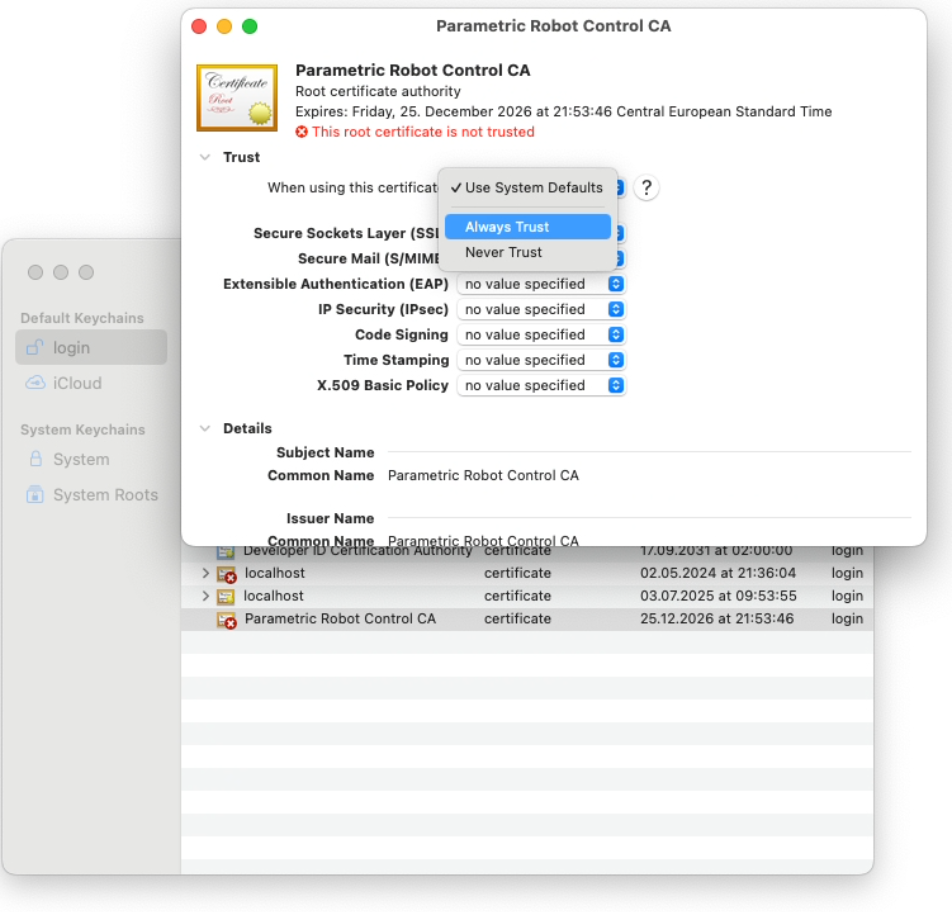
Manual Installation: macOS
The manual installation is not recommended, but provided here primarily for developers.
Unzip the ZIP file provided in the Download section. It should contain a readme.txt and two folders:
PRC.Server and PRC.GH.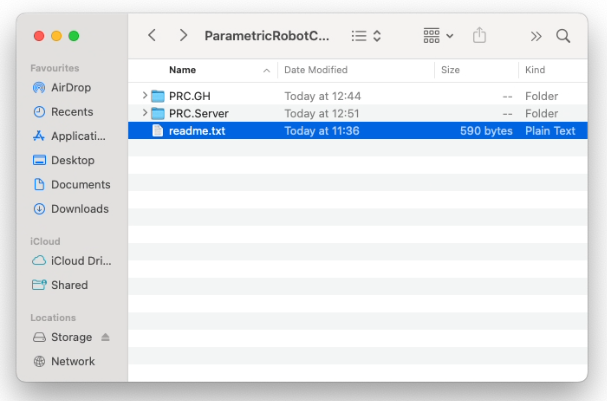
The PRC.GH folder should be placed within the Grasshopper component library. Go into Rhino 8, enter the
Grasshopper command, then select File/Special Folders/Component Folder. Copy the PRC.GH folder into that folder.You will need to restart Rhino for the components to show up. If you are replacing an earlier version, you may need to close Rhino before you are able to overwrite the older files as they may still be in use.
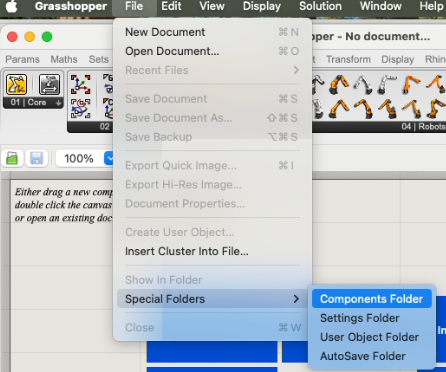
The PRC.Server folder can be placed anywhere on your device. Open the
Certificates subfolder in a Terminal in that folder and enter the following command to install the certificate.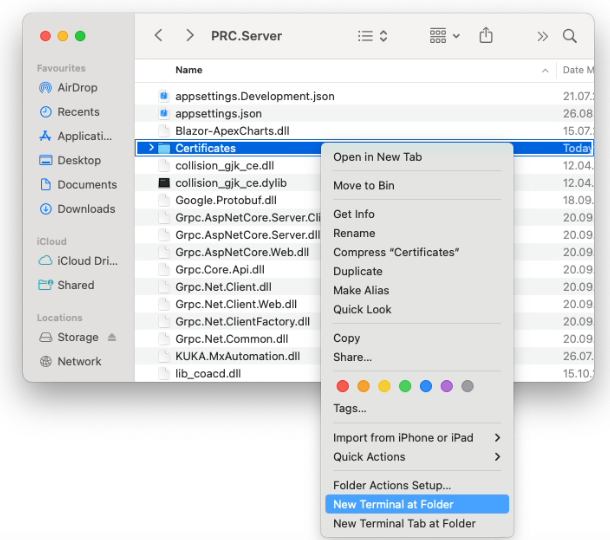
bashsudo security add-trusted-cert -d -r trustRoot -k ~/Library/Keychains/login.keychain-db ./PRCRootCertificate_macOS.crt
Note that you need to enter your password for that. See Certificates for more details why this is necessary and alternative ways of trusting that certificate.
You can start the server by opening a Terminal window of the
PRC.Server folder by right-clicking it and selecting “New Terminal at Folder”.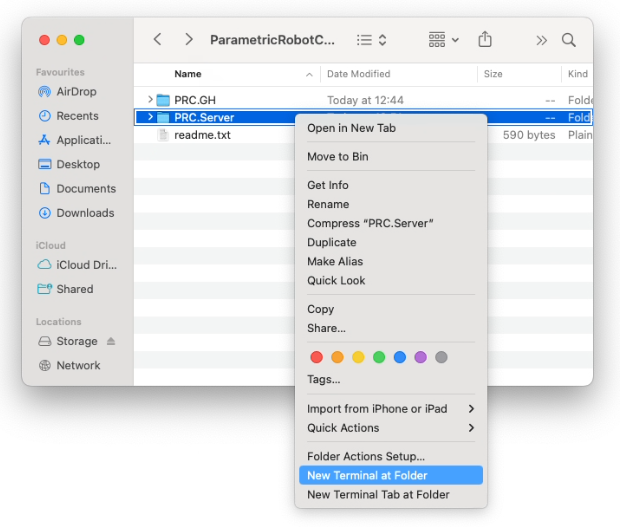
Then enter the following command to run the server:
bashdotnet PRC.Server.dll
Unlike the normal installation, running the server via dotnet will show the terminal-interface with some feedback for troubleshooting. You need to have the .NET runtime for macOS installed, otherwise the dotnet command will not work.
